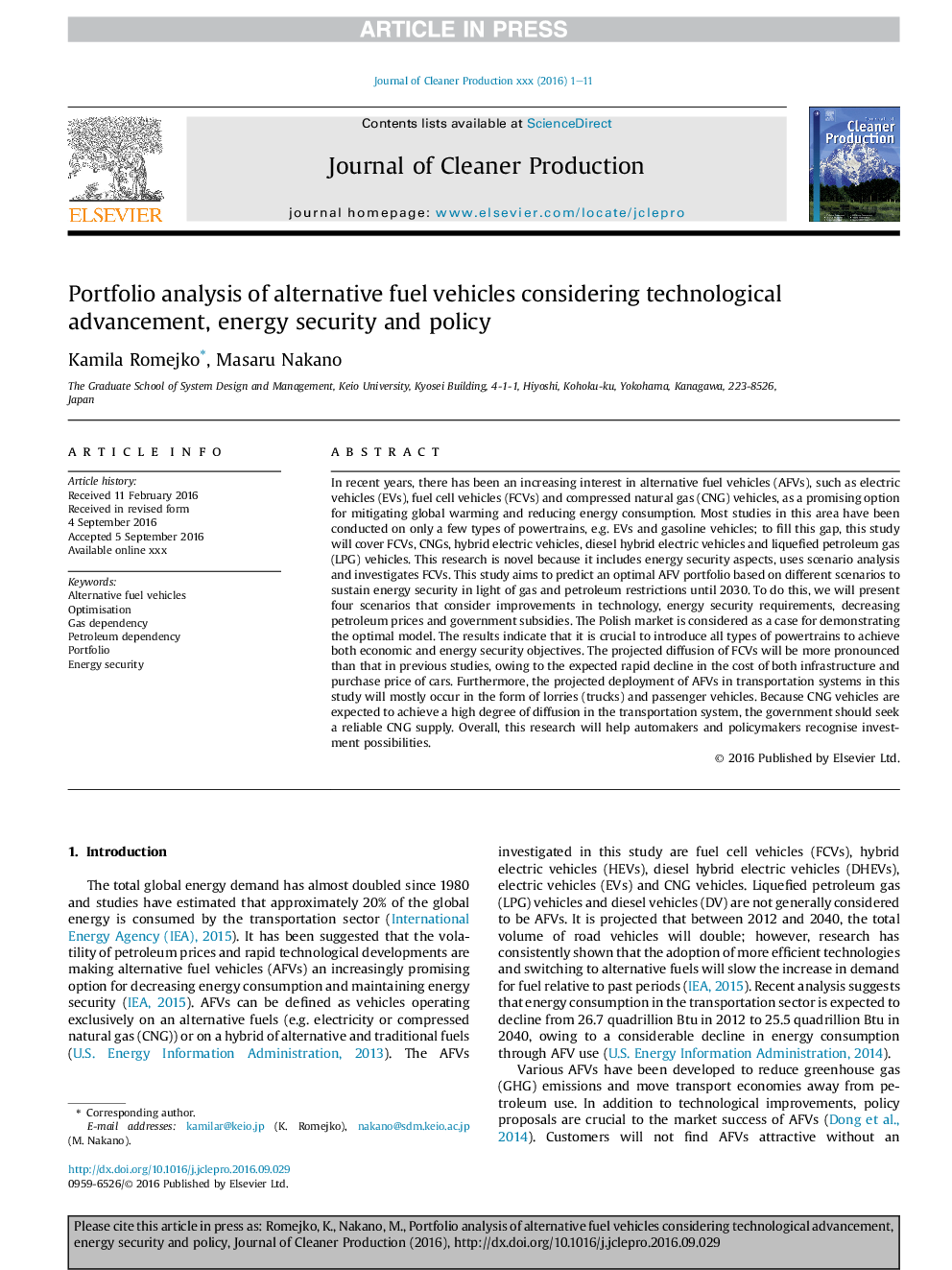ترجمه فارسی عنوان مقاله
تجزیه و تحلیل نمونه کارها از وسایل نقلیه جایگزین با توجه به پیشرفت های تکنولوژیکی، امنیت انرژی و سیاست
عنوان انگلیسی
Portfolio analysis of alternative fuel vehicles considering technological advancement, energy security and policy
| کد مقاله | سال انتشار | تعداد صفحات مقاله انگلیسی |
|---|---|---|
| 111274 | 2017 | 11 صفحه PDF |
منبع

Publisher : Elsevier - Science Direct (الزویر - ساینس دایرکت)
Journal : Journal of Cleaner Production, Volume 142, Part 1, 20 January 2017, Pages 39-49
ترجمه کلمات کلیدی
وسایل نقلیه جایگزین، بهینه سازی، وابستگی به گاز، وابستگی نفت، نمونه کارها، امنیت انرژی،
کلمات کلیدی انگلیسی
Alternative fuel vehicles; Optimisation; Gas dependency; Petroleum dependency; Portfolio; Energy security;

